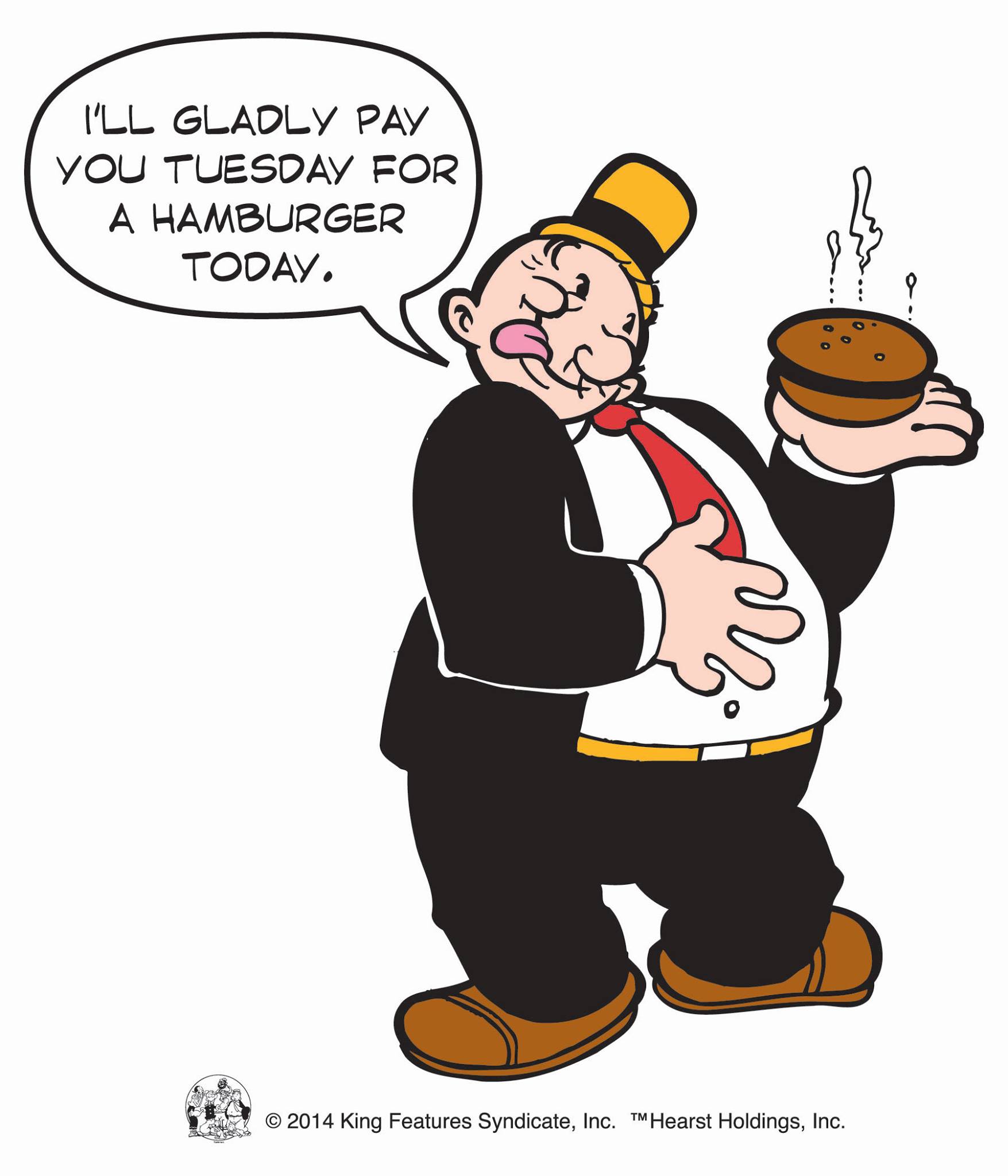
Are You Guilty of The Wimpy Effect?
July 17, 2017
Tennessee Valley Group
“I’ll gladly pay you Tuesday for a hamburger today.” If you are 60 or older, you probably recognize that comment frequently spoken by J. Wellington Wimpy. This character from the Popeye cartoon series seemed to be a successful businessman (after all, he wore a suit and tie). But curiously, Wimpy never had money in his pocket to buy his favorite lunch. He seemed to always be saying “you can trust me, I’ll have it in the future.”
I call this the “Wimpy effect,” and I frequently see it in my work as a business broker. It goes something like this: an owner contacts me about selling their business. To understand the business’ value, I review its product/service offerings, financial performance, organizational structure, and prognosis for the future. When we get to that future part, I notice most owners are very optimistic. It’s fascinating how the future always seems to be much brighter and more profitable than the past. It’s as though the owner is saying “come Tuesday, things will be much better.”
Wimpy จากการ์ตูนเรื่อง Popeye น่าจะเป็นผู้ทำ Short Sell ที่สมบูรณ์แบบ ตัวละครนี้มีชื่อเสียงจากการพูดว่าเขา
“ยินดีจะจ่ายเงินสำหรับแฮมเบอร์เกอร์วันนี้ในวันอังคารหน้า” ในการทำ Short Sell ผู้ขายจะเปิดสถานะโดยการยืมหุ้นซึ่งปกติจะมาจากนายหน้า (Broker-Dealer) จากนั้นจึงพยายามหาเงินจากการใช้หุ้นเหล่านั้นก่อนที่จะต้องส่งคืนให้กับผู้ที่ให้ยืม
ข้อดีข้อเสียของการทำ Short Sell
ข้อดี
ความเป็นไปได้ในการทำกำไรสูง
ใช้เงินทุนเริ่มต้นเพียงเล็กน้อย
สามารถลงทุนโดยการกู้ยืมได้ (Leverage)
ป้องกันความเสี่ยงจากสินทรัพย์อื่น ๆ
ข้อเสีย
ขาดทุนได้ไม่จำกัด
จำเป็นต้องมีบัญชีมาร์จิ้น
ต้องจ่ายดอกเบี้ยมาร์จิ้น
ราคาหุ้นอาจสูงขึ้นอย่างรวดเร็ว (Short Squeeze)
“I’ll gladly pay you Tuesday for a hamburger today.”



ตัวละครที่ทำ ‘Short Sell’ ^^
Are You Guilty of The Wimpy Effect?
July 17, 2017
Tennessee Valley Group
“I’ll gladly pay you Tuesday for a hamburger today.” If you are 60 or older, you probably recognize that comment frequently spoken by J. Wellington Wimpy. This character from the Popeye cartoon series seemed to be a successful businessman (after all, he wore a suit and tie). But curiously, Wimpy never had money in his pocket to buy his favorite lunch. He seemed to always be saying “you can trust me, I’ll have it in the future.”
I call this the “Wimpy effect,” and I frequently see it in my work as a business broker. It goes something like this: an owner contacts me about selling their business. To understand the business’ value, I review its product/service offerings, financial performance, organizational structure, and prognosis for the future. When we get to that future part, I notice most owners are very optimistic. It’s fascinating how the future always seems to be much brighter and more profitable than the past. It’s as though the owner is saying “come Tuesday, things will be much better.”
Wimpy จากการ์ตูนเรื่อง Popeye น่าจะเป็นผู้ทำ Short Sell ที่สมบูรณ์แบบ ตัวละครนี้มีชื่อเสียงจากการพูดว่าเขา “ยินดีจะจ่ายเงินสำหรับแฮมเบอร์เกอร์วันนี้ในวันอังคารหน้า” ในการทำ Short Sell ผู้ขายจะเปิดสถานะโดยการยืมหุ้นซึ่งปกติจะมาจากนายหน้า (Broker-Dealer) จากนั้นจึงพยายามหาเงินจากการใช้หุ้นเหล่านั้นก่อนที่จะต้องส่งคืนให้กับผู้ที่ให้ยืม
ข้อดีข้อเสียของการทำ Short Sell
ข้อดี
ความเป็นไปได้ในการทำกำไรสูง
ใช้เงินทุนเริ่มต้นเพียงเล็กน้อย
สามารถลงทุนโดยการกู้ยืมได้ (Leverage)
ป้องกันความเสี่ยงจากสินทรัพย์อื่น ๆ
ข้อเสีย
ขาดทุนได้ไม่จำกัด
จำเป็นต้องมีบัญชีมาร์จิ้น
ต้องจ่ายดอกเบี้ยมาร์จิ้น
ราคาหุ้นอาจสูงขึ้นอย่างรวดเร็ว (Short Squeeze)